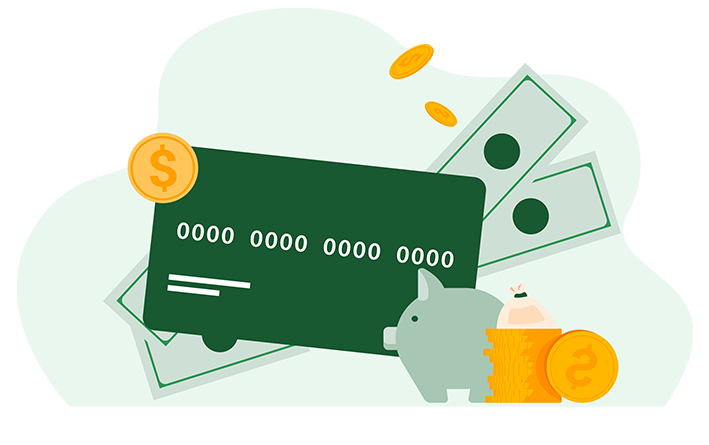Personal Loans

Personal loans are a type of unsecured loan that individuals can borrow from banks, credit unions, or online lenders. They are used for various personal expenses, such as debt consolidation, home improvements, medical bills, or unexpected expenses.
Personal loans typically have fixed interest rates, which means the interest rate remains the same throughout the loan term. The loan amount, interest rate, and repayment term are determined based on factors such as credit score, income, and financial history.
Repayment terms for personal loans usually range from one to five years, although longer or shorter terms may be available depending on the lender. Borrowers make regular monthly payments to repay the loan, including both principal and interest.
It’s important to note that personal loans involve borrowing money and should be carefully considered. Before applying for a personal loan, it’s recommended to compare offers from different lenders, review the terms and conditions, and assess your ability to repay the loan on time.

Loan Types

Unsecured personal loans
Most personal loans are unsecured, so they are not backed by any property, like your house or automobile. Because lenders are concerned about the additional risk associated with these loans, they may charge a somewhat higher annual percentage rate or APR. The APR is the total cost of borrowing, including the interest rate and any fees. Whether you get accepted for an unsecured personal loan and what rate you qualify for is determined mainly by your credit score, income, and other responsibilities. Rates usually range from 6% to 36%, two to seven years.

Secured personal loans
Secured loans are backed by collateral, which the lender has the right to seize if you do not pay back the money. Mortgages (secured by your house) and auto loans are other guaranteed financings. Banks and credit unions allow borrowers to collateralize their loans with personal funds or another asset. Personal loans secured by your automobile are available from online lenders. Because secured loans are considered less risky for lenders, they are generally offered at lower rates than unsecured loans.

Fixed-rate loans
A fixed-rate loan has an interest rate that remains the same for the entire term of the loan. This type of loan is ideal if you need predictable monthly payments and want to avoid the higher interest rates associated with variable-rate loans. Fixed-term loans can be a good option if you want consistent monthly payments and you are worried about long-term interest rates increasing. Because your repayments will not fluctuate, it’s simpler to budget when you have a fixed rate.

Variable-rate loans
The interest rate on a variable-rate loan is tied to a bank benchmark rate. The rate on your loan and your monthly payments, and total interest costs can change depending on how the bank's benchmark rates vary. Variable-rate loans may have lower interest rates than fixed-rate loans. They may also include a ceiling on how much your rate can fluctuate over a set length of time and throughout the life of the loan. Variable-rate loans are suitable for individuals who have a short repayment period because rates might increase but are unlikely to rise dramatically in the near term.

Debt consolidation loans
A debt consolidation loan is a personal loan that allows you to pay off multiple debts with a single new loan. Debt consolidation can save you money on interest and help simplify your monthly payments by replacing various loans with a single payment. For example, you have three different credit cards with balances of $500, $750, and $1000, respectively, and APRs of 15%, 20%, and 25%. By consolidating these debts into a single personal loan with a fixed APR of 17%, you could save hundreds of dollars in interest charges over the life of the loan. When considering a debt consolidation loan, it is essential to compare the APR to the interest rate on your existing debts. The goal is to get a lower APR on the new loan so that you can save money and pay off your debt more quickly. If you are struggling to make payments on high-interest debts, a debt consolidation loan could be good. Just compare offers from multiple lenders to ensure you are getting the best deal possible.

Co-signed and joint loans
A co-signed loan is a loan that requires two people to sign the loan agreement and be equally responsible for repaying the debt. A joint loan is a co-signed loan where both borrowers are equally responsible for repaying the debt, but each has an account with the lender. Co-signing a loan can help you qualify for a lower interest rate, but it also has risks. If you co-sign a loan and the other borrower does not make their payments, your credit score will suffer, and you may have difficulty getting approved for future loans. Joint loans can be helpful if you are trying to improve your credit score or build up your credit history. By opening an account together and making on-time payments, you can improve your credit scores. Just be sure that you trust the other borrower and are confident in their ability to make their payments on time.

Personal line of credit
A personal line of credit is a flexible loan that gives you access to a set amount of funds that you can use as needed. You only pay interest on the portion of the loan you use, and you can typically borrow from your line of credit multiple times. A personal line of credit can be a good option if you need access to cash, but do not want to take out a new loan every time you need money. Lines of credit also tend to have lower interest rates than other types of loans, making them more affordable in the long run.

